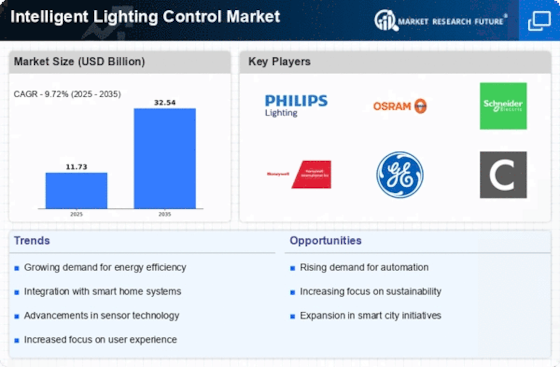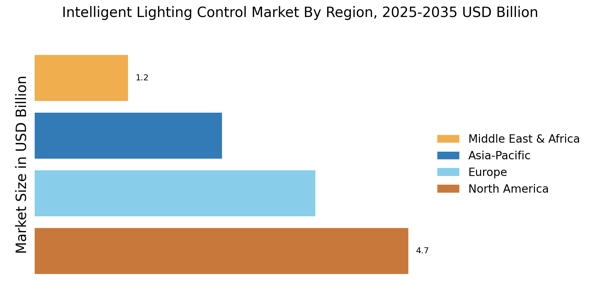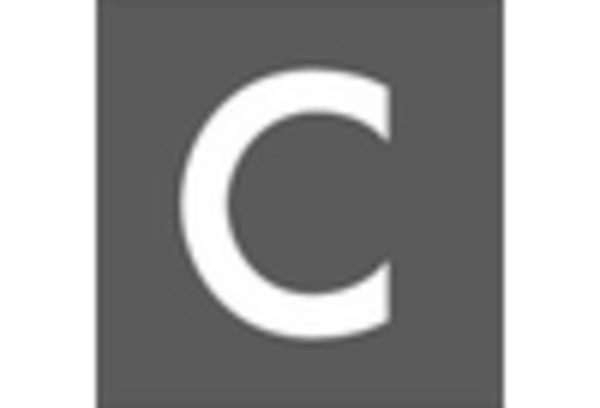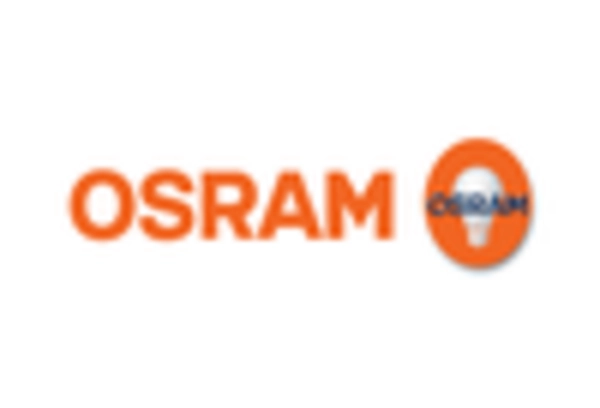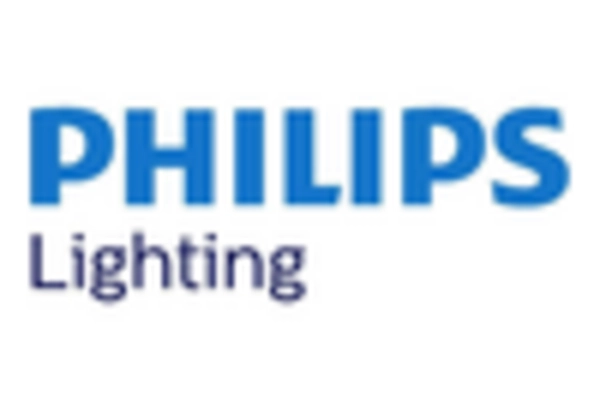Integration of Smart Technologies
The Intelligent Lighting Control Market is experiencing a notable shift towards the integration of smart technologies. This trend is driven by the increasing adoption of Internet of Things (IoT) devices, which facilitate seamless communication between lighting systems and other smart devices. As of 2025, it is estimated that the market for smart lighting solutions will reach approximately USD 30 billion, reflecting a compound annual growth rate of around 20%. This integration not only enhances user experience through automation and remote control but also contributes to energy savings and operational efficiency. The synergy between intelligent lighting and smart home ecosystems is likely to propel further growth in the Intelligent Lighting Control Market, as consumers increasingly seek interconnected solutions that offer convenience and sustainability.
Rising Demand for Energy Efficiency
Energy efficiency remains a pivotal driver in the Intelligent Lighting Control Market. With rising energy costs and growing environmental concerns, consumers and businesses are increasingly prioritizing energy-efficient lighting solutions. The market is projected to witness a surge in demand for intelligent lighting systems that optimize energy consumption through advanced controls and sensors. Reports indicate that intelligent lighting can reduce energy usage by up to 60%, making it an attractive option for both residential and commercial applications. As organizations strive to meet sustainability goals and reduce carbon footprints, the Intelligent Lighting Control Market is likely to benefit from this heightened focus on energy efficiency, leading to increased investments in innovative lighting technologies.
Government Initiatives and Incentives
Government initiatives and incentives play a crucial role in shaping the Intelligent Lighting Control Market. Many governments are implementing policies aimed at promoting energy-efficient technologies and reducing greenhouse gas emissions. For instance, various countries have introduced tax incentives and rebates for businesses and homeowners who invest in intelligent lighting systems. These initiatives not only encourage the adoption of advanced lighting solutions but also create a favorable regulatory environment for manufacturers and service providers. As a result, the Intelligent Lighting Control Market is expected to expand as more stakeholders take advantage of these incentives, fostering innovation and driving down costs associated with intelligent lighting technologies.
Increased Focus on Health and Well-being
The Intelligent Lighting Control Market is also being driven by an increased focus on health and well-being. Research indicates that lighting has a profound impact on human health, influencing mood, productivity, and overall well-being. As awareness of these effects grows, there is a rising demand for intelligent lighting systems that can adjust color temperature and intensity to create optimal environments for various activities. This trend is particularly evident in commercial spaces, where businesses are investing in intelligent lighting solutions to enhance employee productivity and satisfaction. The market for human-centric lighting is projected to grow significantly, suggesting that the Intelligent Lighting Control Market will continue to evolve in response to the changing needs and preferences of consumers.
Growing Urbanization and Smart City Development
The trend of urbanization and the development of smart cities are significantly influencing the Intelligent Lighting Control Market. As urban populations continue to grow, there is an increasing need for efficient and sustainable infrastructure, including intelligent lighting systems. Smart city initiatives often incorporate advanced lighting controls to enhance public safety, reduce energy consumption, and improve the overall quality of urban life. It is anticipated that by 2025, investments in smart city projects will exceed USD 1 trillion, with a substantial portion allocated to intelligent lighting solutions. This trend suggests that the Intelligent Lighting Control Market will likely see robust growth as cities seek to implement innovative lighting technologies that align with their sustainability objectives.

